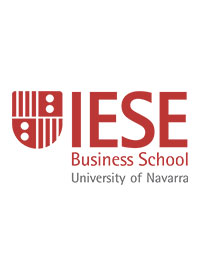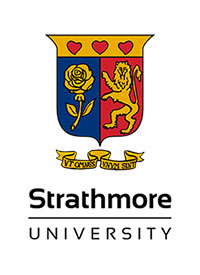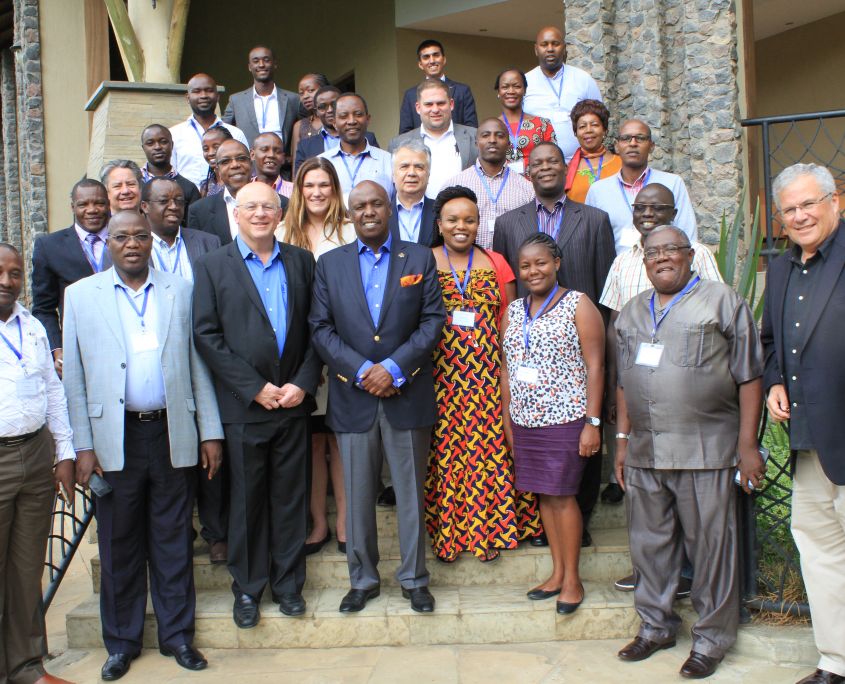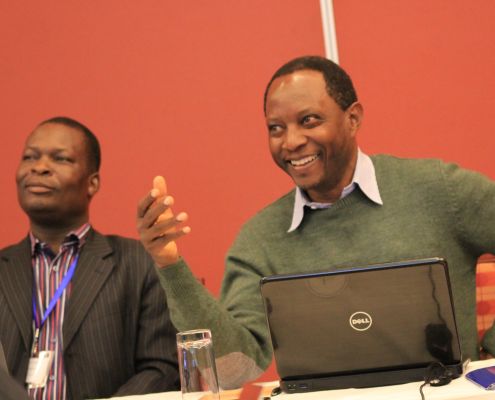


The world is facing an extreme energy shortage. Most regions, in particular Sub-Saharan Africa, lack sufficient access to the energy sources people desperately need. As a result, far too many Africans suffer ill effects from highly polluting cooking fuels; an inefficient and pollution-plagued transportation system overly reliant on gasoline; low crop yields due to prohibitively expensive fertilizers; and an inefficient, patchwork electrical grid. Ending energy poverty has been an elusive goal for decades on that continent and beyond.
 Our first major project outside the U.S. takes on the challenge of energy poverty in Kenya. The Fuel Freedom Chair for Energy and Social Development is a partnership with internationally renowned business school IESE in Barcelona, and a valued and highly respected local business school and partner, Strathmore University in Nairobi. The graduate-level curriculum was taught in March 2017 to more than 40 participants, representing government, private business, banks and nonprofits. The goal of the program was to share proven and scaleable fuels-based solutions to address specific needs and challenges in Kenya.
Our first major project outside the U.S. takes on the challenge of energy poverty in Kenya. The Fuel Freedom Chair for Energy and Social Development is a partnership with internationally renowned business school IESE in Barcelona, and a valued and highly respected local business school and partner, Strathmore University in Nairobi. The graduate-level curriculum was taught in March 2017 to more than 40 participants, representing government, private business, banks and nonprofits. The goal of the program was to share proven and scaleable fuels-based solutions to address specific needs and challenges in Kenya.
We believe that the answer to ending energy poverty can be found in fuel-based solutions that will change the lives of millions of people — first in Kenya, and later all over the world.
“We are facing an extreme energy shortage globally,” said Fuel Freedom Foundation Co-Founder and Chairman Yossie Hollander. “Access to affordable fuels would create significant and positive change in developing nations, and is achievable by fuel diversification — which is why Fuel Freedom and IESE Business School, along with Strathmore University, are partnering to create an energy education and knowledge transfer program to address this issue.”
The program was officially launched in May 2016 in Barcelona. That’s where Hollander and the Program Chair, IESE Prof. Ahmad Rahnema, led a presentation on the perils of energy poverty in Africa before a standing-room-only crowd inside the school’s largest lecture hall. Months earlier, the program had been adopted as a Commitment to Action at the 2015 Clinton Global Initiative’s Annual Meeting in New York.
The program’s core focus will be on these four critical areas of energy consumption:
Transportation. Oil-based fuel costs are embedded in every product and service, and these costs are significantly higher in Africa and other emerging economies than they are in the developed world. By optimizing their vehicles to run more efficiently on the fuels they have, or by converting their existing gasoline-powered cars to run on locally produced and cleaner alternative fuels like ethanol, methanol or butanol, Africans can significantly reduce their transportation costs.
Cooking Fuels. About 3 billion people in the world cook and heat their homes using open fires and stoves that use wood or biomass. These dirty fuels increase pollution, as well as the risk of premature illness and death (more than 50 percent in children under age 5). Gender-based violence is also a common occurrence, as women set out to collect fuel materials. Domestically made ethanol or butanol (among others) can be used in cook stoves instead, reducing levels of soot and other pollutants, and saving the lives of women and children.
Fertilizer Production. Lack of affordable fertilizers is the main reason for low agricultural yields, and the primary driver of food insecurity. Locally produced alternatives can be developed using residual natural gas, or by expanding production of biochar as a soil nutrient.
Electricity. Most rural electricity in Africa comes from small generators that burn diesel or gasoline. Diesel generators can be converted to run on cheaper, cleaner and locally produced methanol and other fuels, improving air quality and increasing efficiency.

“We are very pleased to partner with Fuel Freedom Foundation to launch an innovative energy education program that will hopefully change the lives of many,” said Tomás Tomeo, Director of Corporate Development at IESE Business School. “A Commitment to Action is the defining feature of the Clinton Global Initiative and we feel honored to be recognized.”
Kenya is just the beginning for the project. Addiction to oil is a global problem, and we want to use the expertise we have gained in the U.S. to inform policymakers and influencers around the world about solutions that can bring an end to energy poverty and improve the lives of millions everywhere.
Please join this global effort by adding your name to our sign-up list, or donating to the cause.